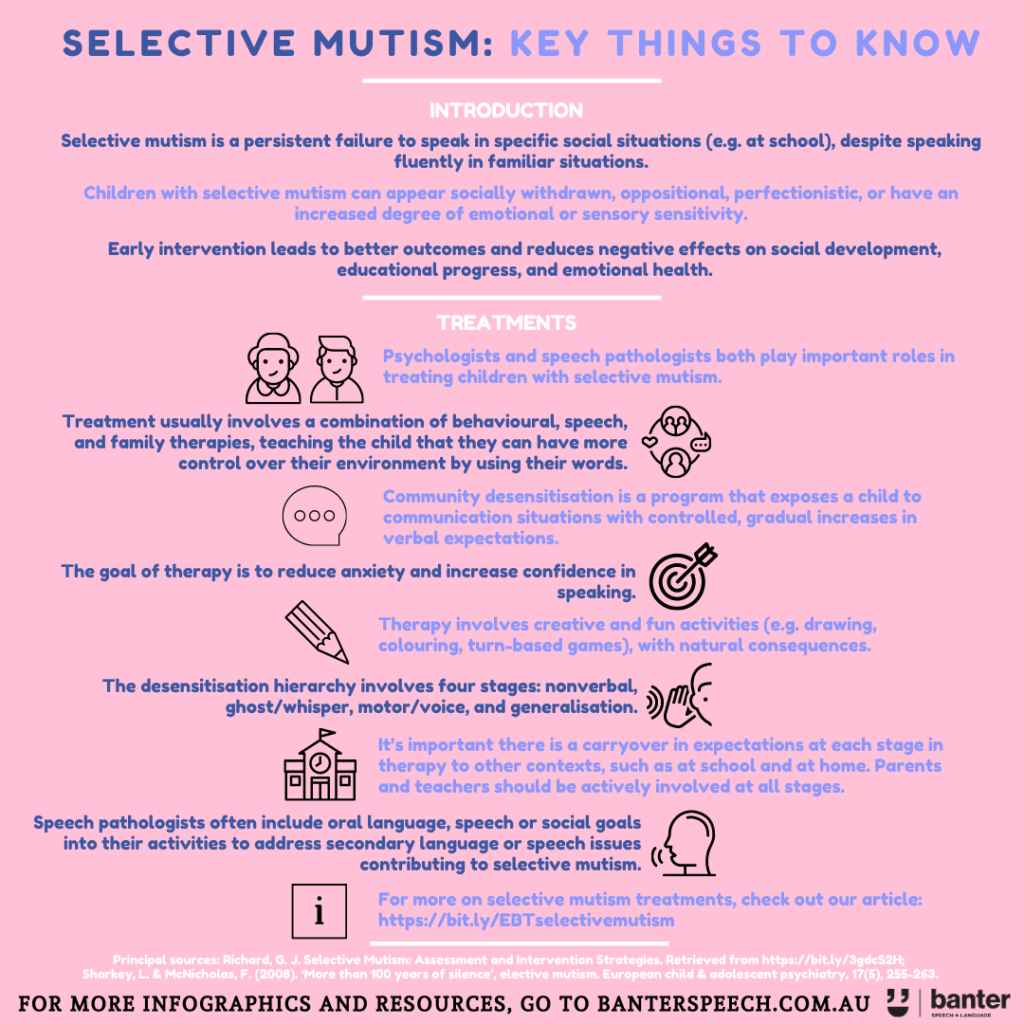- Selective mutism is a persistent failure to speak in specific social situations (e.g. at school), despite speaking fluently in familiar situations.
- Children with selective mutism can appear socially withdrawn, oppositional, perfectionistic, or have an increased degree of emotional or sensory sensitivity.
- Early intervention leads to better outcomes and reduces negative effects on social development, educational progress, and emotional health.
- Psychologists and speech pathologists both play important roles in treating children with selective mutism.
- Treatment usually involves a combination of behavioural, speech, and family therapies, teaching the child that they can have more control over their environment by using their words.
- Community desensitisation is a program that exposes a child to communication situations with controlled, gradual increases in verbal expectations.
- The goal of therapy is to reduce anxiety and increase confidence in speaking.
- Therapy involves creative and fun activities (e.g. drawing, colouring, turn-based games), with natural consequences.
- The desensitisation hierarchy involves four stages: nonverbal, ghost/whisper, motor/voice, and generalisation.
- It’s important there is a carryover in expectations at each stage in therapy to other contexts, such as at school and at home. Parents and teachers should be actively involved at all stages.
- Speech pathologists often include oral language, speech or social goals into their activities to address secondary language or speech issues contributing to selective mutism.
- For more on selective mutism treatments, read our article: When silence is not golden: evidence-based treatment for children with selective mutism.

Principal sources: Richard, G. J. Selective Mutism: Assessment and Intervention Strategies. Retrieved from here; Sharkey, L. & McNicholas, F. (2008). ‘More than 100 years of silence’, elective mutism. European child & adolescent psychiatry, 17(5), 255-263.
Related article:

Hi there, I’m David Kinnane.
Principal Speech Pathologist, Banter Speech & Language
Our talented team of certified practising speech pathologists provide unhurried, personalised and evidence-based speech pathology care to children and adults in the Inner West of Sydney and beyond, both in our clinic and via telehealth.

